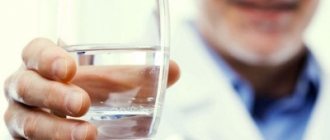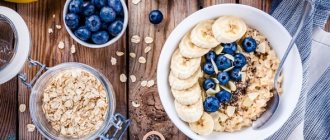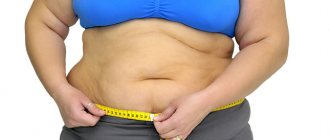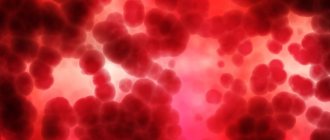Author Irina Gusakova
27.09.2020 17:10
Health » Health and prevention
Most of us find it difficult to imagine our morning without a drink that invigorates the mind and body... We are used to thinking that vigor arises from the caffeine contained in the drink. However, caffeine itself does not give vigor as such.
When we are excessively tired or lack of sleep, our body produces a substance called adenosine. When adenosine receptors are “activated,” it is difficult for a person to focus on work, and symptoms of drowsiness characteristic of a state of fatigue appear.
Scientists talk about the benefits of coffee for the heart
A couple of cups of coffee a day can reduce the risk of developing heart disease, cardiologists from the University of Colorado School of Medicine have found. The study was published in the journal Heart Failure
.
Coronary heart disease, heart failure and stroke are among the main causes of death from cardiovascular diseases, scientists explain. The main risk factors are smoking, old age and high blood pressure, but scientists tend to believe that there are many more important factors, and perhaps coffee consumption is one of them.
Using neural networks, scientists analyzed data from participants in several large studies of heart disease that lasted at least 10 years. In total, they used information about more than 21 thousand adults. They divided them into four groups, depending on the number of cups of coffee they drank per day - 0, 1, 2 and 3 or more. However, participants reported their coffee consumption independently.
Drinking one or more cups of coffee per day was found to reduce the risk of heart failure in the long term.
On average, a cup of coffee a day reduced risks by 5-12%. Those who drank at least two cups of coffee a day had a 30% lower risk of heart failure. Further examination of the data showed that any source of caffeine appears to improve the outlook.
“The association between caffeine consumption and a reduced risk of heart failure was surprising,” said Professor David Kao, lead author of the study. - Coffee and caffeine are popularly considered to be bad for the heart because people associate them with increased heart rate, high blood pressure, etc. The positive link between increased caffeine consumption and a reduced risk of heart failure puts everything on its head.
However, there is not yet clear enough evidence to recommend drinking more coffee to reduce the risk of heart disease with the same confidence that we recommend quitting smoking, exercising and managing weight.”
“The risks and benefits of drinking coffee have been of ongoing scientific interest due to the popularity of coffee around the world,” said Professor Linda Van Horne, co-author of the paper. “But the studies showing the effects of coffee on certain aspects of health are rather limited due to problems in dietary assessment, methodology, self-reporting of food intake and other aspects.”
According to US federal dietary guidelines, 3-5 small cups of coffee per day can be part of a healthy diet. However, we are talking about black coffee - cappuccino, latte and other coffee drinks contain a lot of sugar and fat, which is not very healthy. Also, coffee and caffeinated drinks should not be consumed by children.
“The bottom line is: enjoy coffee in moderation, as part of a healthy diet that meets recommendations for fruits, vegetables, whole grains and dairy, and avoid saturated fat and added sugars,” concludes Dr. Penny Chris-Etherton. “It’s also important to remember that caffeine is a stimulant, and if you consume too much of it, it can lead to nervousness and trouble sleeping.”
However, it is also better not to drink coffee in the morning, they warn
physiologists from the University of Bath in the UK. Drinking coffee in the morning on an empty stomach impairs glucose metabolism, which can potentially lead to diabetes. In addition, it is known that caffeine stimulates a greater release of fats into the blood, which also prevents the body from receiving glucose from the blood.
By solving one problem with caffeine, you can create a new one for yourself, and, by fighting drowsiness, worsen glucose metabolism.
Changes in glucose metabolism indicate decreased insulin sensitivity and an increased risk of developing type 2 diabetes in the future, but other factors such as physical activity need to be taken into account when predicting long-term outcomes, the researchers noted. Single changes will not cause serious harm, but regular, systematic intervention in metabolic processes can really affect health.
Daily value and recommendations for use
According to various nutritionists, the permissible daily intake of caffeine ranges from 300 to 500 mg. Otherwise, the digestive system suffers, since the drink increases the acidity of the stomach, and tachycardia and cardiac arrhythmia may occur.
If there is concern about exceeding the dosage, it is recommended to drink a drink with beneficial additives.
- Milk or cream. Dairy products can bind tannins and reduce the effects of coffee on the organs. This combination is especially useful for those who have stomach pain. Milk also replenishes calcium reserves that are washed out of the body if consumed regularly. You just need to remember that in this case the calorie content of the product increases, and in the case of cream, cholesterol may also increase.
- Honey. The bee product helps to enrich the diet with minerals that are lacking in coffee.
- Lemon. Citric acid slightly neutralizes the effect of caffeine. Therefore, it is good to add lemon if you have a great passion for the drink. In addition, it replenishes vitamin C reserves. Lemon also thins the blood.
- Cinnamon. This spicy spice improves metabolism and, together with caffeine, promotes weight loss. But you need to know that cinnamon should not be consumed in large quantities by pregnant women, those with liver and kidney diseases, as well as hypertension.
The longer the ground beans are infused in water, the more caffeine in the drink. Therefore, if you need to invigorate well and for a long time, you need to drink it without adding milk and lemon, infusing it properly, for example, in a French press.
Cooking and eating
With moderate mechanical care. Meat and fish are boiled. Prepared without salt...
Allowed
Bread and flour products: wheat bread made from grade 1 and 2 flour, yesterday’s baking or slightly dried, dietary salt-free bread, savory cookies and biscuits
Soups: 250-400 g per serving, vegetarian with various cereals, potatoes and vegetables, beetroot soup, you can add sour cream, herbs
Meat and poultry: lean varieties of beef, veal, meat and trimmed pork, rabbit, chicken, turkey. After boiling, you can bake or fry, or make jellied dishes. Boiled sausages – limited
Fish: low-fat varieties
Dairy products: milk if tolerated, fermented milk drinks, low-fat cottage cheese and dishes made from it, cheese Eggs: up to 1 pc. per day, soft-boiled, baked omelettes, egg white omelettes or added to dishes
Cereals: dishes from various cereals in the form of porridges, casseroles, boiled pasta
Vegetables: boiled, baked or raw potatoes, carrots, beets, zucchini, pumpkin, tomatoes, lettuce, cucumbers
White cabbage and green peas in limited quantities. Green onions, dill, parsley - in dishes
Fruits, sweet dishes: soft ripe fruits and fresh berries, dried fruits, compotes, jelly, mousse, jellies, milk jelly and creams, honey, jam, non-chocolate candies
Drinks: weak tea, coffee drinks, fruit and vegetable juices, rosehip infusion, limited grape juice
Fats: unsalted butter and ghee, natural vegetable oils
Must be excluded
Fresh bread, butter and puff pastry products, meat, fish and mushroom broths, fatty meats and fish, goose, duck, liver, kidneys, brains, smoked meats, sausages, canned meat and fish, caviar, salty and fatty cheeses, hard-boiled and fried eggs, legumes, salted, pickled and pickled vegetables, spinach, sorrel, radish, radishes, garlic, onions, mushrooms, fruits with coarse fiber, chocolate, natural coffee, cocoa, meat and cooking fats.
In case of circulatory failure of a more pronounced degree (2b-3) of the cardiovascular system, dishes are prepared boiled and mashed; fried foods, hot and cold, are prohibited. Diet: 6 times a day in small portions. The amount of bread is reduced to 150 g per day, the amount of soup is reduced to 200 g or completely eliminated. Exclude cheese, millet, barley and pearl barley. The amount of liquid taken per day is limited to 800-1000 ml under the control of urine output. The set of basic products is the same as for the N10 diet.
Download and print:
Diet No. 10
Make an appointment Do not self-medicate. Contact our specialists who will correctly diagnose and prescribe treatment.
Clotting
Coffee is contraindicated only if you have a tendency to bleed (Photo: pixabay.com)
Studies have found a negligible effect of coffee on blood clotting. It is not so great as to recommend the drink for the prevention of stroke and blood clots. But it is not so insignificant that it could be used for hemophilia (coagulation disorders and tendency to bleeding), on the eve of operations and before childbirth.
So if you do not have blood pathologies and are not planning surgery in the near future, you can drink the drink without fear.
Diuretic effect
For every cup of coffee you should drink a glass of water (Photo: pixabay.com)
The neutral effect of the drink on blood viscosity can only be considered if the water balance in the body is not disturbed. A couple of cups a day does not have a significant effect on kidney function, so you can stick to your usual drinking regimen.
But if you are used to drinking more coffee, it is important to understand that caffeine stimulates the kidneys and has a diuretic effect. In moderation, the drink is good, as it facilitates and improves the functioning of the heart. In large cases, it becomes dangerous, as it provokes dehydration, and with it extremely negative consequences: thickening of the blood, excess load on the heart, and the risk of blood clots.
To eliminate the danger of the diuretic effect of coffee, experts recommend drinking a glass of water with each cup. Not immediately, of course, but after some time. This will allow you to maintain the balance of moisture in the body and get only pleasure and beneficial effects from coffee.
Contraindications
Despite the fact that the danger of drinking coffee is greatly exaggerated and is primarily related to the dosage of the substance, there are some cases when it is better to limit the drink.
- Children and old age. It is undesirable to use a strong stimulant both in adulthood and in baby food. In the first case, there are many disruptions to the body’s vital functions, and it does not need unnecessary stimulation. In the second, the functionality of the organs has not yet been developed, and caffeine is also not needed in childhood.
- Pregnancy and lactation. The effect of caffeine on child development has been little studied. But there are observations that indicate that caffeine in large quantities can cause fetal pathologies or lead to the birth of a child with reduced weight. But 1 cup a day will give the expectant mother pleasure and will not harm the baby. During breastfeeding, you should completely give up your favorite drink for a while, since the period of breastfeeding is one of the most hectic for mothers. And if the child’s increased excitability is added to the load of frequent feedings, then this will not benefit anyone.
- Ulcer and gastritis. The digestive tract is the first to take the hit. And even if the drink is natural, made from grains, and does not contain any unnecessary or dangerous additives, it still has high stomach acidity and has a strong effect on the gastrointestinal tract.
- Sick kidneys. Diseases of the excretory system weaken the kidneys. The diuretic effect and stimulation are not needed by these organs during an exacerbation.
- Glaucoma. The presence of this disease is a complete contraindication to drinking coffee.
Also beware of coffee addiction, which we discussed in more detail in a separate article.









